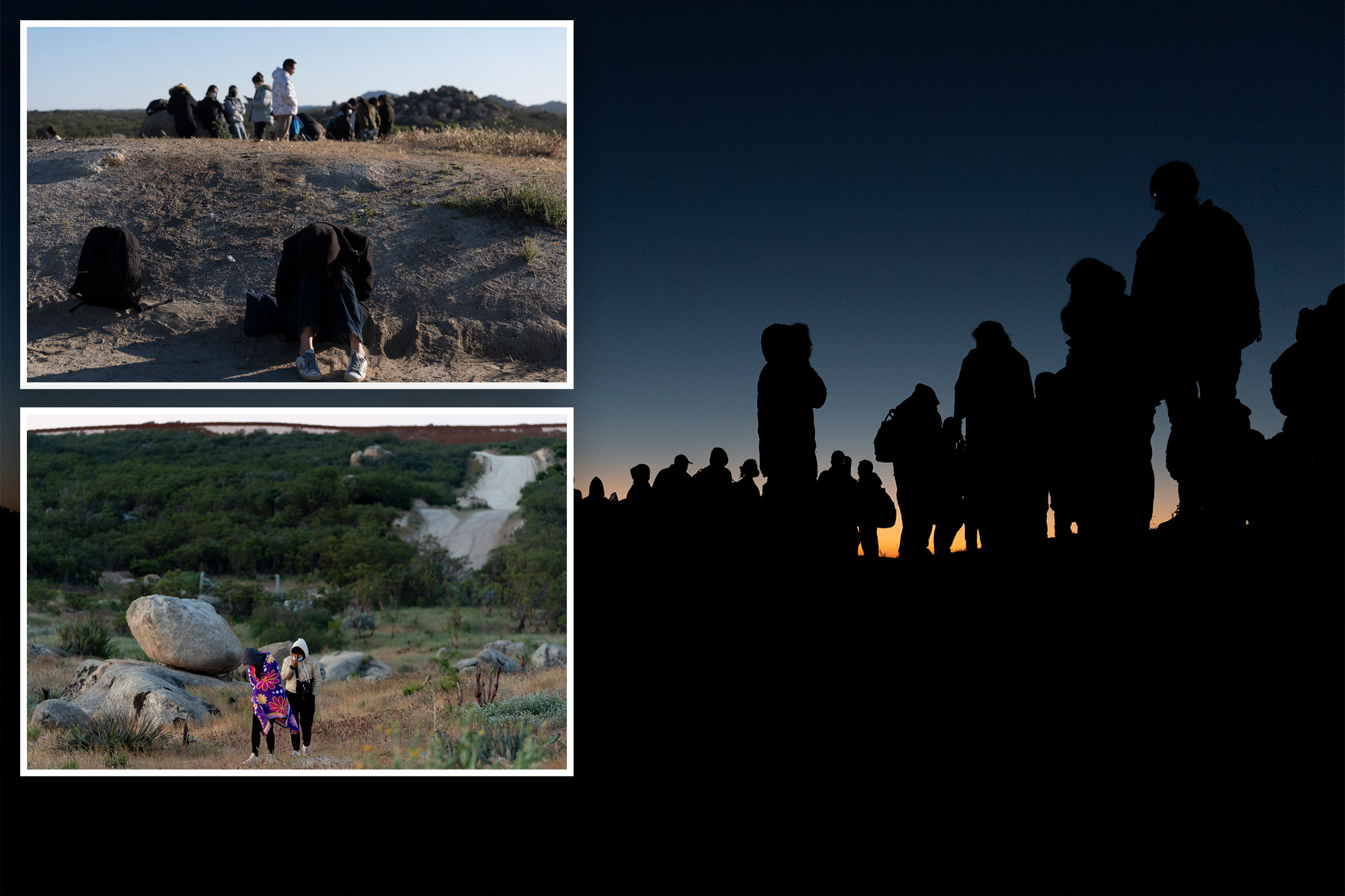
San Diego is not only a popular tourist destination but has become a favorite spot for migrants to illegally slip across the US-Mexico border, new data shows.
An astounding 8,016 migrants were apprehended in the second week of May alone — that’s after a jaw-dropping 10,023 were caught two weeks prior, according to figures shared by the region’s Border Patrol.
The numbers show no signs of slowing down, with more than 35,490 arrests made in April, making it the busiest of the Border Patrol’s nine sectors along the southern border for the second month in a row — and for the first time since the 1990s.
The sudden surge could be blamed on the other states suffering from migrant fatigue, like Texas, cracking down on their borders, forcing aliens and their smugglers to seek out easier paths to the US.
“Mexican authorities have put a lot of pressure on key migration routes to Texas, and that may be forcing people to try other routes further west,” Cris Ramón, senior advisor on immigration for the Latino civil rights organization UnidosUS, told the Los Angeles Times.
”Migration is a dynamic phenomenon, and people are going to adjust and find the circumstances where they have the best chance to reach the United States.”
Texas Gov. Greg Abbott has led an intense anti-migrant campaign that involves stationing National Guard Troops along the border and bussing illegal aliens who succeed in entering to more progressive municipalities, like New York City.
AP
California — a Sanctuary State — has proven more forgiving, especially in San Diego, which released a “minimum” of 125,000 migrants from detention onto the city streets “without proper vetting” in the six months since September 2023, officials told The Post this month.
The surge doesn’t reflect a change in overall arrests along the border, but just a switch in where they are entering.
San Diego saw a 69% rise in migrant arrests between Oct. 1 and March 31 while Texas sectors saw a 29% drop, the Times reported.
A senior Customs and Border Protection official who spoke on condition of anonymity told the paper that the government would be dispatching additional agents to the San Diego border to quell the recent swells, which Mexican authorities will be mirroring on their side of the border.
“Just like we’ve done in the past, when the cartels shift, we adjust our operations,” the official said.
The effort might only have a bandaid effect, they warned, suggesting that it would only be a matter of time before new routes emerged elsewhere.
“The cartels,” the official said, “are constantly trying to find ways to exploit and circumvent enforcement.”














